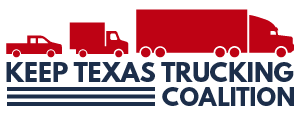wsj.com Jennifer Smith
Soaring insurance costs are taking a toll on the trucking business, adding a financial drag for carriers already contending with weakening freight demand.
Underwriters have been ratcheting up the cost of liability coverage to recoup losses as“nuclear” accident payoutsof $10 million or more increase, insurance brokers say. Trucking companies were hit with double-digit-percentage coverage increases last year, and rate hikes are expected to continue in 2020.
The costs are weighing on trucking companies of all sizes, with some smaller operators that shut down recently citing insurance as a factor in their demise.
“It’s a brutally tough insurance market right now,” James Reed, chief executive of USA Truck Inc., a large Van Buren, Ark.-based trucking company, said in a November earnings call. “There’s some real cost headwinds that, absent a price recovery,” could weigh on results in the first half of 2020, he said.
Federal law requires trucking companies to cover drivers for a minimum of $750,000 per accident, and most shipper contracts require at least $1 million of coverage. Although carriers with five or fewer trucks might stop there, larger operators often purchase more layers of liability coverage to protect themselves from larger claim awards.
The cost of truck insurance premiums rose 12%, on average, to 8.4 cents a mile, in 2018 from the previous year, according to the most recent figures available from the American Transportation Research Institute, an industry group. That was the second-highest increase among carrier expenses in 2018 after fuel, which, along with driver compensation, accounted for the two biggest line-item costs that year.
“A lot of motor carriers are facing 20% to 30% increases,” said Michael Nischan, vice president of transportation and logistics risk control at EPIC Insurance Brokers & Consultants, whose legal name is Edgewood Partners Insurance Center. “These are motor carriers that are doing their best. If you cannot demonstrate that you’re obsessed with safety, you may not get renewed.”
Rates are rising especially quickly in excess liability coverage as shippers demand higher limits for their motor carriers, said Chris Demetroulis, managing director for the transportation practice at insurance brokerage Arthur J. Gallagher & Co. Some of the firm’s trucking customers are paying twice as much for policies that offer half the coverage limit they previously held, he said, as underwriters look to limit their exposure to big payouts.
“The median verdicts have gone from $23 million to $44 million over the last 18 months,” Mr. Demetroulis said.
In one example, a Georgia case involving a head-on collision with a tractor-trailer in 2016 that killed five members of a family resulted in a $280 million jury award last year against the trucking company.
Mark Brockinton, chief executive officer of the transportation and logistics practice for risk advisory and insurance brokerage firm Aon PLC, said motor carriers are trying to mitigate their risk in various ways. Among them, said Mr. Brockinton: “utilizing equipment with collision avoidance systems, using speed limiters on their tractors (excessive speed is one of the leading causes of truck crashes), adopting hair testing to identify lifestyle drug users, and even avoiding traffic lanes where a pattern of large verdicts have occurred.”
Insurance costs are one factor contributing to the difficult operating conditions for truckers. Transportation demand swung lower last year from a booming market in 2018, and many carriers are focused on cutting costs.
Mary Ann Hudson, managing director for Bibby Financial Services Inc.’s transportation finance subsidiary, which processes freight bills for companies, said the cost of insurance was the biggest issue the company’s trucking clients faced in 2019. “If they have one blip on their insurance it’s increasing their rates astronomically,” she said. “Maybe it’s not even a full-fledged accident but a claim, and it’s causing their insurance companies to panic.”
One customer told the company that he couldn’t afford a 24% rate increase, Ms. Hudson said. Instead, he chose to lease both his trucks to another company so he could use that carrier’s insurance and operating authority.
Fleetwood Transportation Services Inc., a Texas carrier with about 100 company trucks, according to federal transportation records, shut down on New Year’s Eve after it was unable to renew its insurance at rates the company could afford, according to media reports.
“Insurance was the only factor” in the shutdown, Fleetwood Chief Financial Officer Ronnie King said in an interview, declining to comment further.
Write to Jennifer Smith at jennifer.smith@wsj.com
Copyright ©2020 Dow Jones & Company, Inc. All Rights Reserved. 87990cbe856818d5eddac44c7b1cdeb8
